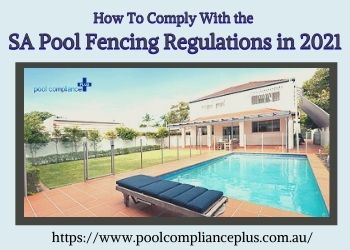The most recent swimming pool regulation and associated standard updates in 2018 that applies to swimming pool compliance in South Australia (SA), has left many individuals confused even to these days in 2021. The legislation states that it is highly dangerous to own a pool that is non-compliant with the pool fencing regulations in your South Australian property. You will find yourself self-insured if a child gets into your pool enclosure and there is an incident, and even worse, an accident or death, unless you have told your insurer that you do not possess a compliance certificate as per your duty of care. Whether you are aware of the legislation or not, all pool enclosures must comply with the SA swimming pool compliance requirements.
So, as a pool owner what can you do to escape the possibility of fines resulting from your local council’s spot check and as well as guaranteeing a safe swimming environment for your family?
Leasing or Selling Properties with Pools
There are a few points worth discussing and the liability may have quite an impact if not addressed.
- First and foremost, without first organising and obtaining a certificate of compliance, you cannot lease out your property with a pool or spa under the new updated pool safety laws and legislation in South Australia. Land managers ought not to be advertising houses, and having a tenant to live in the property without obtaining a current certificate of compliance within the rental contract.
- There are unique laws in SA for properties with swimming pools available for sale or rental purposes. It became mandatory in 2013 for all swimming pools to be included in the SA Swimming Pool Registry. The first move is to arrange registration if your pool or spa is not registered. How do you know if it is registered or not?
- Book an inspection with an approved certifier. This is necessary for landlords with expiring compliance certificates and where tenants have given notice. Without a current compliance certificate, tenants should not enter into a new contract. Owners who sell have the option of selling with a non-compliance certificate, but an accredited certifier must be called for pool fencing regulations compliance inspection.
Are You Planning to Purchase a Pool House?
Most buyers tend to purchase a house where the pool has been certified with a Compliance Certificate, since this ensures the buyer can rest assured knowing that the pool enclosure is safe and compliant. We are meeting several new owners who have no idea how to correct the problems because they have not been explained to them. This is where you can help with recommendations unique to your pool enclosure from your Certified Certifier.



